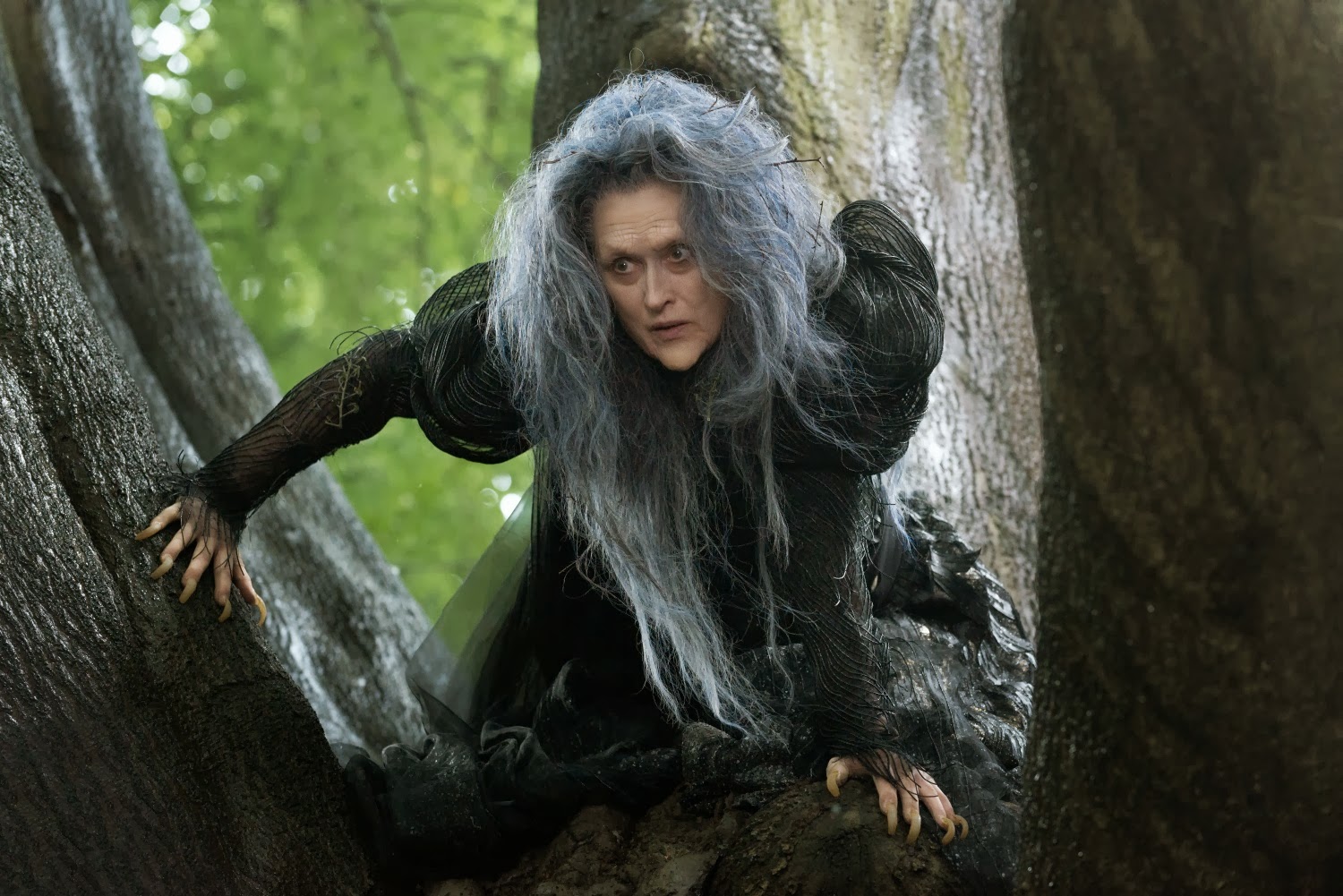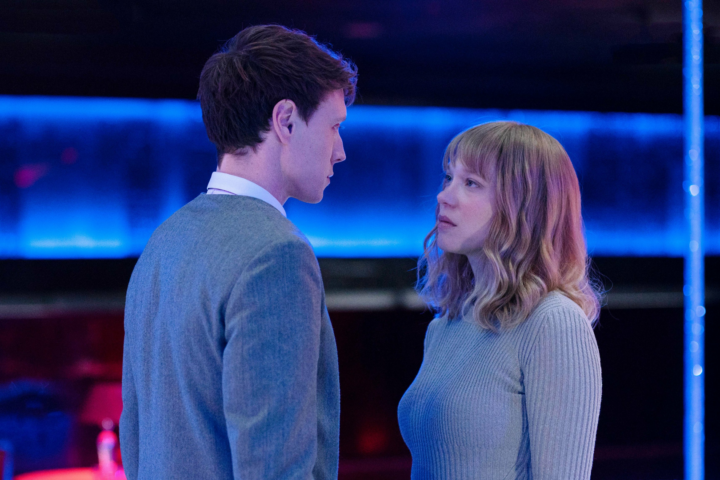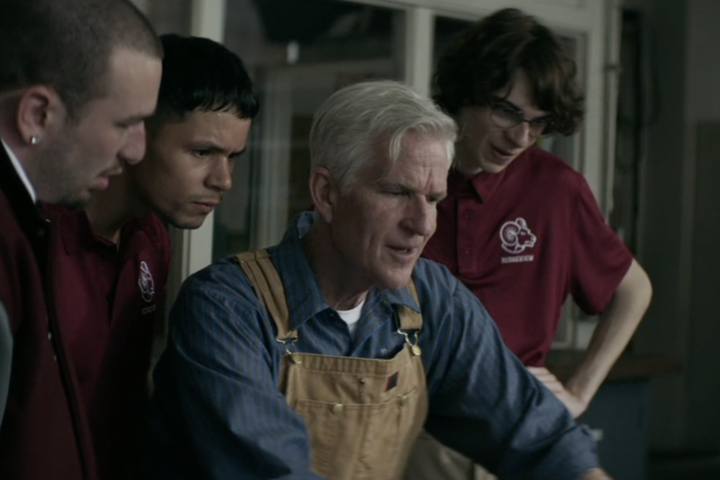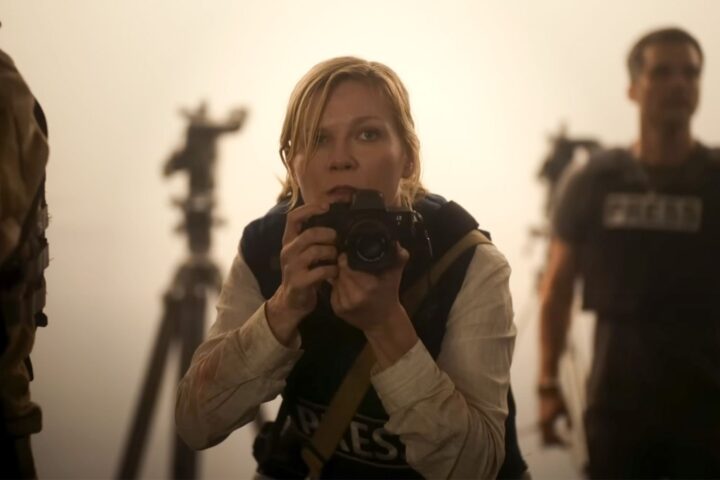Director Rob Marshall and Disney had high expectations and a bit of skepticism riding on their adaptation of Stephen Sondheim and James Lapine’s beloved 1986 musical Into the Woods, and what initially seemed an unwieldy combination—a fractured trio of fairy tales where love doesn’t conquer all and human weakness and doubt upend genre tropes, made by a feel-good studio known for exactly the opposite.
But the gamble has worked to a degree in Marshall’s adaptation, a sprawling ensemble musical that hasn’t been watered down or softened a bit, retaining its sad heart and darker elements even if it feels overscaled at times and far less charming than its source. It’s neither an unqualified success nor a failure, but a moderately diverting dark fantasy with lovely music, a strong ensemble, effective comedy and polished production values.
In a country village lives a baker (James Corden) and his wife (Emily Blunt), desperate for a child but unable to conceive. A visit from their next door neighbor, a haggard witch played by a wily Meryl Streep, reveals the reason—a decades old curse has been placed on them, and lifting it involves procuring a red cape, yellow hair, a milky white cow, a golden slipper and a red cape—sound familiar?
Given only a few days to procure and little instruction to do so, other than go into the woods, the bickering pair come upon Red Riding Hood (a charmless Lilla Crawford), Rapunzel (Mackenzie Mauzy), Jack (Daniel Huttlestone) and his beanstalk and Cinderella (a lovely, fine-voiced Anna Kendrick), as well as a pair of comic princes (Chris Pine, Billy Magnussen), a wicked stepmother (Christine Baranski in sharp form), two ugly stepsisters (Tammy Blanchard, Lucy Punch) and two prowling giants.
It’s good fun for awhile, but the story turns on its second half, which indulges in fantasy wish fulfillment for one shining moment—the quest is fulfilled, the princess marries her prince, etc.—until a darker second half comes along. Princes are unfaithful, it turns out, marriage vows fallible and princesses liberate themselves from bad marraiges while betrayals and deceptions lurk underneath each of the relationships, and happily ever after gets a lot shorter. The picture also gets a lot colder.
Marshall keeps the film moving at a respectable clip, and there is acceptable entertainment value in some of it, particularly some of the more touching moments (“Stay with Me”) and shamelessly broad, silly ones (“Agony”) courtesy of Streep, Kendrick, Blunt (in the less showy role) and especially the surprising Chris Pine, a terrific singer with tongue-in-cheek comic timing.
But it’s Streep who owns the picture, as she so often does, and her witch is, by turns, menacing, funny, self-deprecating, sensual, motherly, commanding and bittersweet. It’s quite a nice performance, though at times the star feels like she’s acting up a storm—and indeed she does, with each entrance—unchecked, given reign by Marshall to freely interpret. And that’s okay, really, because her energy lifts the picture each time she’s onscreen, big as she often may be.
Into the Woods is a sum-of-its-parts picture, one that works in fits and starts, but the assertion that fairy tales don’t have happy endings is a good one, and the ensemble is solid even when the picture feels a bit outsized in its impressive special effects.
3 stars.



